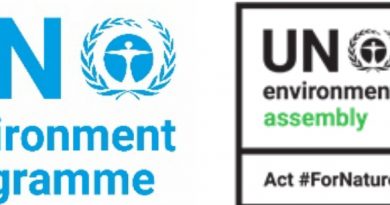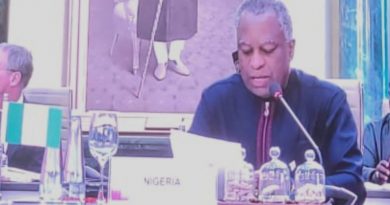68th Anniversary of the Japan Self-Defense Forces
Norio Maruyama
First July, marks the 68th anniversary of the establishment of the Japan Self-Defense Forces (JSDF) and the JSDF is celebrating its Memorial Day.
Over the years, through the Japan-U.S. Alliance, the JSDF has contributed to regional and domestic peace, stability, and disaster relief. For the implementation of the Japanese fundamental foreign policy of contributing to world peace and stability, the JSDF has joined the UN Peacekeeping operations as well as disaster relief teams to help countries which are affected by damages from earthquakes, tsunamis, floods and typhoons.
In particular, regarding disaster relief activities, looking back on the past 10 years, the JSDF has been dispatched to many countries as an international disaster relief team to deal with large-scale natural disasters that occur almost every year: 2010 (Haiti, Pakistan), 2011 (New Zealand), 2013 (Philippines), 2014 (Malaysia, Ghana, Indonesia), 2015 (Sierra Leone, Nepal), 2016 (New Zealand), 2018 (Indonesia), 2019 (Djibouti), 2020 (Australia), 2022 (Tonga).
I would like to take this opportunity to look back on the relationship between Africa and the JSDF, which South Africans might not be very familiar with, and consider the possibility of future cooperation.
The very first time the JSDF were engaged in PKO in Africa was in Mozambique in 1993, the same year in which the TICAD (Tokyo International Conference on African Development) process started. While contributing to the peace and stability of the African continent is of crucial importance to Japan, in 1994 Japanese disaster relief teams were dispatched to Zaire (now the Democratic Republic of the Congo) to support Rwandan refugees. In 2009, the JSDF commenced counter-piracy operations in the waters off the coast of Somalia and in the Gulf of Aden, and in 2011 set up the facilities for that purpose in Djibouti. Furthermore, a part of the forces for counter-piracy operation carried out international disaster relief activities during the floods in Djibouti in 2019.
From 2011, the JSDF engineering unit was dispatched to South Sudan for approximately five and a half years as part of the United Nations Peacekeeping forces. Moreover, when Ebola raged in West Africa in 2014, the JSDF aircraft carried supplies such as Japanese PPE (personal protective equipment) to support the UN Mission for Ebola Emergency Response (UNMEER) in Ghana. This was the first time the JSDF aircraft traveled to West Africa. The JSDF continues with its commitment to UN international peacekeeping operations through its ongoing personnel presence for the UNMISS headquarters and its support of anti-piracy operations based in Djibouti.
In South Africa, the JSDF has cooperated with and it has made various contributions to the South African National Defence Force (SANDF) through the Peace Mission Training Center (PMTC) at SANDF Training Command. Furthermore, we will continue to promote cooperation for international peace between Japan and South Africa.
Since the pandemic broke out, the world has become even more uncertain. At the root of all these problems that the world faces today is a situation in which confidence in the universal rules that govern international relations is being shaken. This is the essential and most serious underlying problem.
Japanese Prime Minister Kishida Fumio made a speech at the Shangri-La Dialogue held in Singapore in June. Prime Minister Kishida announced “Kishida Vision for Peace” in order to maintain and strengthen the peaceful order in the region by promoting the following five pillars of initiatives.
・ “The first is maintaining and strengthening the rules-based free and open international order; in particular, we will press forward in bringing new developments towards a Free and Open Indo-Pacific (FOIP).

・ The second is enhancing security. We will advance the fundamental reinforcement of Japan’s defense capabilities in tandem with reinforcing the Japan-U.S. Alliance and strengthening our security cooperation with other like-minded countries.
・ The third is promoting realistic efforts to bring about a world without nuclear weapons.
・ The fourth is strengthening the functions of the United Nations, including UN Security Council
In South Africa, the JSDF has cooperated with and it has made various contributions to the South African National Defence Force (SANDF) through the Peace Mission Training Center (PMTC) at SANDF Training Command. Furthermore, we will continue to promote cooperation for international peace between Japan and South Africa.
Since the pandemic broke out, the world has become even more uncertain. At the root of all these problems that the world faces today is a situation in which confidence in the universal rules that govern international relations is being shaken. This is the essential and most serious underlying problem.
Japanese Prime Minister Kishida Fumio made a speech at the Shangri-La Dialogue held in Singapore in June. Prime Minister Kishida announced “Kishida Vision for Peace” in order to maintain and strengthen the peaceful order in the region by promoting the following five pillars of initiatives.
・ “The first is maintaining and strengthening the rules-based free and open international order; in particular, we will press forward in bringing new developments towards a Free and Open Indo-Pacific (FOIP).
・ The second is enhancing security. We will advance the fundamental reinforcement of Japan’s defense capabilities in tandem with reinforcing the Japan-U.S. Alliance and strengthening our security cooperation with other like-minded countries.
・ The third is promoting realistic efforts to bring about a world without nuclear weapons.
・ The fourth is strengthening the functions of the United Nations, including UN Security Council reform.
・ The fifth is strengthening international cooperation in new policy areas such as economic security.”
Japan is already working with our strategic partner South Africa in many areas of these pillars. Among them, I would like to emphasize the first pillar.
Japan has been promoting a Free and Open Indo-Pacific (FOIP) with a view to maintaining and strengthening the rules-based free and open international order in this region. The idea of FOIP, which is the union of two free and open oceans and two continents, was set out by Prime Minister Abe at TICAD VI held in Nairobi in 2016 and outlines the following:
“When you cross the seas of Asia and the Indian Ocean and come to Africa, you then understand very well that what connects Asia and Africa is the sea lanes. What will give stability and prosperity to the world is none other than the enormous liveliness brought forth through the union of two free and open oceans and two continents. Japan bears the responsibility of fostering the confluence of the Pacific and Indian Oceans and of Asia and Africa into a place that values freedom, the rule of law, and the market economy, free from force or coercion, and making it prosperous. Japan wants to work together with you in Africa in order to make the seas that connect the two continents into peaceful seas that are governed by the rule of law. That is what we wish to do with you.”
In this regard, Prime Minister Kishida said that:
“The rule of law serves as the foundation supporting this kind of international order. Alongside it are the peaceful resolution of disputes, the non-use of force, and respect for sovereignty. On the sea, it is freedom of navigation, and in the economy, free trade.”
As the relationship between Japan and South Africa deepens year by year, we believe that this idea of FOIP, especially the securing of a sustainable marine order based on the rule of law, will contribute to the development of South Africa surrounded by the Indian Ocean and the Atlantic Ocean.
Through cooperation based on FOIP, we hope that the future-oriented relationship between the two countries will further develop in various fields such as security, economy, resources, energy, infrastructure, and human resource development.
Norio Maruyamais the current Ambassador of Japan to South Africa
Source: Diplomatic Society




